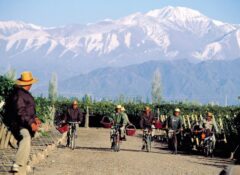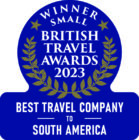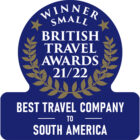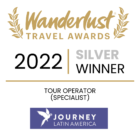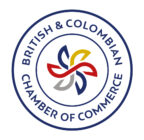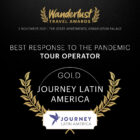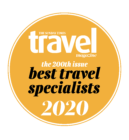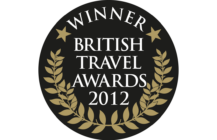Private Journeys
Self-drive Cuba: Explore the east
13 days from £2,240pp
(based on two people sharing & excluding flights)
Essentials
-
Tour info
-
Country info
-
What's included
Tour info
Transport
A minimum of 6 scenic road journeys in your self-drive car.
Accommodation
Accommodation on this trip is of a superior quality for Cuba where standards of amenities and service, though constantly improving, can be erratic. You’ll find well-equipped rooms, private bathroom and air-conditioning in most and some local colour and special features.
Meals
Breakfast daily and Lunch on day 4.
Guides
We carefully select our local partners; their English-speaking guides understand the expectations of our clients very well, and are consistently singled out for praise by the latter on their return.
Summary Of Nights
13 days, 12 nights: Havana 2; Trinidad 2; Camagüey 2; Santiago 2; Gibara 2; Santa Clara 1; Havana 1.
Currency
The unit of currency in Cuba is the Cuban peso.
How To Take It
Cuba imposes a 10-15% charge on dollar exchange. To avoid this, you should travel a reasonable quantity of with sterling or euro cash (no more than is covered by your insurance). Notes should be in good condition, soiled or torn ones may be refused. Both euros and sterling are accepted in most banks and some of the larger hotels. You can change these into convertible Cuban pesos (CUC) on arrival. Keep the official receipt from your transaction, because you will need this should you want to change any currency back to sterling or euros at the end of your trip.
Credit cards (not issued by US banks) are also accepted in some places, but be aware that there is a 11% surcharge on payments made by card, including on cash advances. Havana has a few ATMs and there are a couple more popping up in other cities, although these cannot be relied on. Maestro cards are not accepted in Cuba.
Daily Spend
It is very difficult to give a guideline for essential expenses but a budget of around £35 per day should cover the cost of meals not included in the holiday itinerary, drinks and the odd souvenir. Eat at the best restaurants and you will pay considerably more.
Tipping
Tips are welcomed and local guides often rely on their tip as a significant proportion of their income.
Most service industry workers will expect a tip of some kind and so it is useful to have spare change for hotel porters, taxi drivers and the like. It is common to leave 10 – 12% in restaurants.
Many Cubans lack what we consider to be daily necessities, such as soap, plasters, bras, aspirin and stationery.
If you have room in your case for some such things, they will be hugely appreciated by the islanders.
Tipping guidelines can be found in our Briefing Dossier.
Insurance And Documents
Travel insurance is essential. Cuban authorities require visitors to have travel insurance, and specifically for the medical and repatriation element of cover to be from an approved provider. Please check with your insurance company that their provider is similarly approved.
Details of our recommended policy can be found on our Travel Insurance page.
Fully comprehensive car insurance is included, though there is an excess. Please enquire if you wish to purchase Total Damage Waiver.
The minimum age for hiring a car in Cuba is 21 years. Insurance and supplements for additional drivers can be paid locally, in Cuban Convertible Pesos. There is a CUC20 fee for picking up your car at the airport (payable locally) and additional fees for dropping off your car in towns where there is no car rental office – please ask us for details. Unlimited mileage is included, but not fuel.
Airport Taxes
If you have purchased your flights through Journey Latin America, the international departure tax is usually included in the ticket.
Departure tax from Cuba is included in the price of your ticket.
Visas
Holders of a full British passport do not require a visa, although passports must be valid for at least 6 months after the trip begins. A completed Cuban tourist card is essential for all UK citizens travelling to Cuba, we will organise this for you. Clients with a different nationality should enquire with us or check with the Cuban consulate.
0
Generally this holiday is suitable for all able, reasonably fit visitors, including families. You should have in your party a confident driver, preferably with some mechanical knowledge.
Road maps and signage are poor, but roads are lined with local people who are happy to help, most speak a little English, though if you speak a bit of Spanish it certainly helps. With a Silva compass and a decent map (we’ll give you one), you can find you’ll get to your destination safely (NB: satnavs don’t work properly in Cuba). Main roads are in a relatively decent condition; venture off the beaten track and you will encounter potholes and other barriers requiring caution.
In Cuba there are often delays and occasionally cancellations – patience and a flexible attitude will be a virtue in these situations.
Climate
As Cuba lies in the Caribbean, it has a tropical climate that is split into two seasons, one wet and one dry.
However, Cuba is generally hot throughout the year (18-32°C) with regular rainfall and high humidity. The rainy season runs from May to October and from July to September, humidity can be very high. The east of the island is hotter and more humid that the west. Hurricanes and tropical storms are possible from July to October.
Clothing And Special Equipment
No special clothing or equipment is required although comfortable walking shoes or trainers, and sandals would be useful. Light, summer clothing will be adequate for these hot temperatures, and the dress code is very casual everywhere. Thin, long-sleeved garments may be useful for evenings, and a lightweight raincoat is the best protection against tropical downpours. We also recommend that you pack a torch as lighting can be poor at night.
Protection against the sun (sunblock, sun hat) and mosquito repellant are essential and you should bring swimwear. A daypack is useful for carrying sunblock, guidebook, water and any extra layers.
We suggest that you provide your own reflective jackets for all passengers, and a first aid kit. Sometimes power cuts and closures mean that usable petrol stations are far apart, so fill up whenever you have the chance.
Please get in touch with the office before departure if you have any doubts. Good equipment is very important and hard to come by in Cuba.
Vaccinations
Preventative vaccinations are recommended against the following: typhoid; polio; tetanus; hepatitis A. For specific requirements you must consult your GP.
You can also find helpful information on the Masta Travel Health website.
Country info
When is the best time to visit Cuba?
The high season for visitors is Dec - Apr when the weather is usually sunny, mostly dry and not too humid, though there can be cool days. Hurricane and tropical storms are possible Aug - Nov.
For more detailed information visit our When To Go section.
What's the official language of Cuba?
The official language of Cuba is Spanish.
What is the official currency in Cuba?
The Cuban National Peso (CUP) is the only official cash currency in Cuba, however many outlets will accept US dollars and some may also accept Euros. We recommend you bring your funds in US$ cash and exchange a small amount into CUPs when in Cuba. You can also exchange Euros but we don't recommend Sterling. Your bank notes should not be damaged in any way. As a foreign tourist you should receive a considerably better exchange rate than the ‘official’ rate used for commercial transactions.
A limited number of ATM's are available around Cuba, but queues can be large, charges can be high, and the official rate of exchange is given which makes them much less attractive.
Changing small amounts at a time into CUPs will help to avoid having leftover currency when you leave Cuba (it is not always easy to exchange CUPs back to other currencies).
Private hotels, bars and restaurants often accept payments directly in US$ (or Euros) cash. For these transactions bring small denominations if possible, and note that coins will not be accepted. Change may sometimes be given in CUPs.
You’ll generally need to use a credit/debit card to cover transactions in government shops and hotels, as well as car-rental extras such as petrol and local fees. However, some clients have issues using cards in Cuba so don’t rely on them as your only source of funding. Be sure to check with your bank that your cards are accepted in Cuba (cards linked to US banks are not accepted locally). At Cadeca exchange offices it is now possible to purchase a prepaid card (Tarjeta Clasica) which can be bought in cash with US Dollars/Euros. These can be used to obtain petrol.
Using money changers in the street is not recommended as it is illegal and you are more likely to receive forgeries.
What is the time difference between Cuba and UK?
Cuba operates daylight saving hours, so is generally 5 hours behind the UK year round, but as the dates of their time changes are slightly different, there are short periods around March and October/November when this will vary.
Do I need a visa to travel to Cuba?
Holders of a full British passport do not require a visa, although passports must be valid for at least 6 months after the trip begins. A completed Cuban tourist card is essential for all UK citizens travelling to Cuba, we will organise this for you. Clients with a different nationality should enquire with us or check with the Cuban consulate.
APIS – Many countries now oblige airlines to provide additional information about passengers prior to the flight departure. This Advance Passenger Information (APIS) must be supplied to us promptly in order to issue tickets and avoid fare increases. We will provide the airlines with the relevant details if we are booking your international flights. If the information is not provided you may be denied boarding.
What vaccinations are recommended for visiting Cuba?
Please check Travel Health Pro for information on health recommendations and vaccinations for the destinations you are visiting. Please note that many Latin American countries require proof of vaccination against Yellow Fever if you have recently travelled to another country where Yellow Fever is present.
What places combine well with Cuba?
Mexico’s Yucatán is a great place to combine with Cuba. Flights from Cancún to Havana take approximately 1hr 15mins.
What are the festivals and cultural events in Cuba?
There are carnivals throughout the country on different dates. Havana’s carnival moves around date-wise year upon year, but is always accompanied by parades, music, drumming and dancing. Santiago’s carnival in July is probably the biggest and the best.
International Jazz Festival takes place in Havana in December. This is one of the world’s best, and there are workshops and concerts to enjoy.
Inspired by this trip
Our exciting range of articles on Latin America explore everything from iconic destinations and lesser-known cultural gems to delicious traditional recipes. You’ll also find exclusive travel tips, first-hand client reviews and the chance to get your personal questions answered by our travel experts.
Papagaio
Your edit for Latin American inspiration
Our exciting range of articles on Latin America explore everything from iconic destinations and lesser-known cultural gems to delicious traditional recipes. You’ll also find exclusive travel tips, first-hand client reviews and the chance to get your personal questions answered by our travel experts.
View Extraordinary Inspiration



